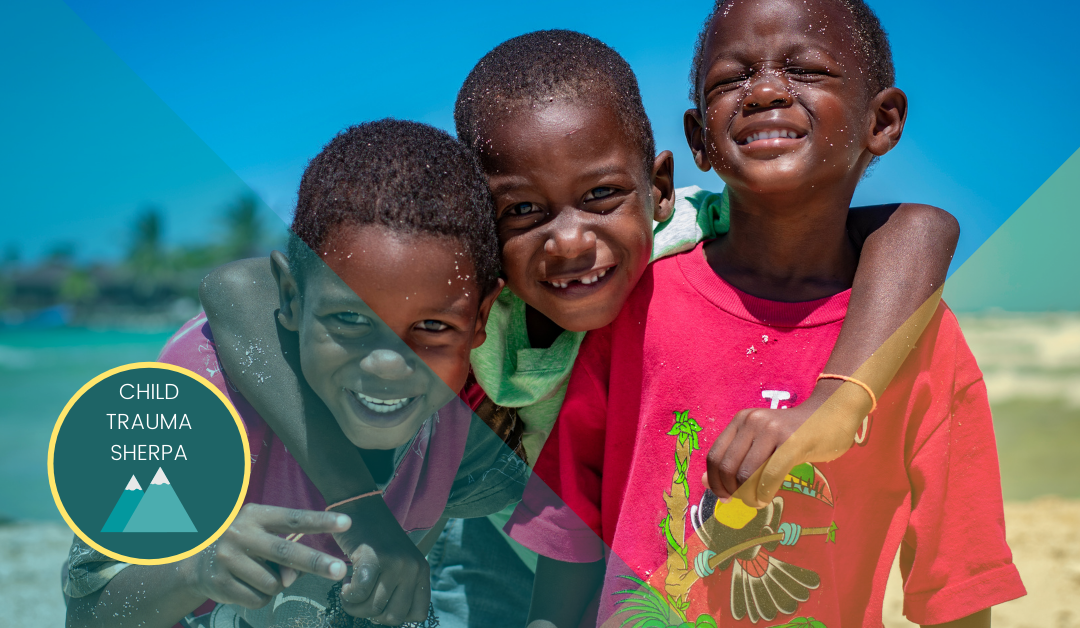Helping Your Adopted Teen Heal from Adverse Childhood Experiences
Childhood trauma can be difficult to work through and heal from. Even though it is an actual brain injury, the brain is really quite resilient and can heal up through the age of 25. If your adopted adolescent or teen child is suffering from the effects of adverse childhood experiences (ACEs), there is still time to help your child heal and live a healthy, productive life.
What is Childhood Trauma?
According to the National Survey of Children’s Health, approximately 35 million U.S. children and adolescents have experienced childhood trauma. So what constitutes childhood trauma? It is defined as abuse (physical or sexual), witnessing domestic violence, neglect, accidents, a death in the family, substance use, divorce or incarceration, to name a few. For children and adolescents, experiencing these traumatic events can leave them feeling confused, upset and depressed which leads to many health and behavioral issues which can become long-term issues if not properly addressed.
Symptoms of Childhood Trauma in Adolescents
The symptoms of childhood trauma change throughout childhood and adolescence. The symptoms in a baby or toddler will not be the same as a child entering their teenage years. Here are some of the most common symptoms you can expect to see in an adopted teenager who has experienced ACEs.
- Regressed Behaviors: Teens who have experienced childhood trauma often display one of two types of behavior: overly-expressive and under-expressive. Overly-expressive behaviors include verbal and physical aggression to others. Under-expressive behaviors include social isolation and avoidance of others, are generally verbally non-expressive and non-reactive. However, both coping styles are a form of avoidance of the actual problem.
- Mood Issues: Mood issues such as irritability and bouts of sadness and anger are more prevalent in teens who have experienced ACEs. While some moodiness in a teen is normal, it’s important to note that these moods are often related to the trauma they experienced. Your teen with trauma may also be at a higher risk of harming themselves due to increased feelings of depression and sadness.
- School Challenges: Teens have higher academic demands placed on them which can increase stress, making it more difficult for them to manage their emotions. You might see an overall decline in grades and overall low performance. The ability to concentrate declines as intrusive thoughts or unwanted imagery from the traumatic events replays in their mind. Skipping school and other behavior problems in the classroom may also be an issue.
- Social Relationships Issues: Teens with trauma can isolate themselves from friendships and tend to keep to themselves. This can be due to a fear of friends not understanding or lack of desire to have friends. Unhealthy attachments are also a symptom of trauma and can affect romantic relationships. It is important to be mindful of any romantic relationships your teen forms during this time.
How to Help Your Teen Heal from Childhood Trauma
While symptoms may change through the years for your adopted child with trauma, there are some constants in how you can parent your child to help them heal from past trauma.
- Stability and Consistency: Providing stability and consistency can be done in many ways. For teens, limiting current stressors can be key in allowing them the space and time to heal from past events. Limit their options for various activities so they do not become overwhelmed from the chaos of too many activities. Help them keep a consistent routine for daily activities as this will provide additional stability and help them learn healthy routines. Also, be consistent in your rules and boundaries as well as your reactions to their behaviors. Being consistent and stable helps your child learn to build trust with you and other adults, something that many children with trauma experience a lack of due to the traumatic experiences they have gone through.
- Predictability: Anxiety and stress is often the result of the fear of the unknown. Dismantling uncertainty can help your teen feel more in control and less stressed. Help by setting expectations for events and activities beforehand. While you or your teen can’t control everything in their life, arming them with knowledge about what to expect in certain situations can help set them up for success and decrease anxiety.
- Promote Safety: Limiting chaos and increasing predictability can provide your teen with a safer space to grow and heal. Here are some things to keep in mind about creating a safe space for your teen to heal: take arguments with your partner to a private space to limit your adopted teen’s exposure to conflict that may retraumatize them; give your teen an open space to disclose feelings and thoughts free of judgment; and remind your teen of your unconditional love and support.
- Support Network: Be sure that you and your adopted teen have a support network of peers, family, educators, community leaders, medical professionals and religious or spiritual groups or leaders. Be sure that everyone is on the same page, otherwise little to no healing may occur.
- Professional Treatment: Seek professional treatment, such as mental health services with a trauma-informed clinician for more specialized and individualized care and help for your child’s unique needs.
Conclusion
Remember to parent your child where they are behaviorally and not chronologically. It is important to meet your child where they are so as not to retraumatize them. With love, patience, support and time, your adopted adolescent child will begin to heal from their past traumas.


